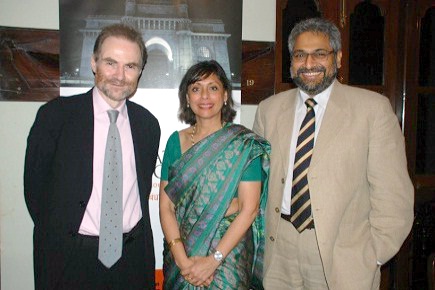
Although the 21st century is regarded as the Asian Century, the success stories of Asian economies coincide with the rapid economic and political changes currently unfolding in the West; especially Europe. This, hence, calls for greater cooperation among the Asian nations to sustain their much-lauded recent economic growth in the years to come. Such a process has already begun in the form of the Asia Cooperation Dialogue, which held its first summit in Kuwait, in October 2012 – which aimed to integrate the Asian economies on issues of common importance like poverty reduction, economic integration, among others.
While Asia is poised to take the form of a ‘union,’ it can learn from the successes and failures of the EU. How can Asia initiate a union on such a grand scale? Can it be a successful federation without the burden of a currency and political union? To what extent should the EU be used as a template, if at all?
On January 23, Gateway House, in collaboration with the British Council and The Taj Palace, hosted Timothy Garton Ash, Professor of European Studies and Honorary Chair of the European Studies Centre, University of Oxford, in conversation with Siddharth Varadarajan, Editor, The Hindu, to discuss the prospects of a future ‘Greater Asia’.
Timothy Garton Ash is Professor of European Studies, Isaiah Berlin Professorial Fellow and Honorary Chair of the European Studies Centre. He is also a Senior Fellow at the Hoover Institution, Stanford University.
Siddharth Varadarajan is the Editor of ‘The Hindu,’ one of India’s leading dailies, and a widely-read commentator on national and international issues. Prior to this, he was the newspaper’s National Bureau Chief. He has also been a Poynter Media Fellow at Yale University, and won the Ramnath Goenka Award for print journalism, in 2010.
